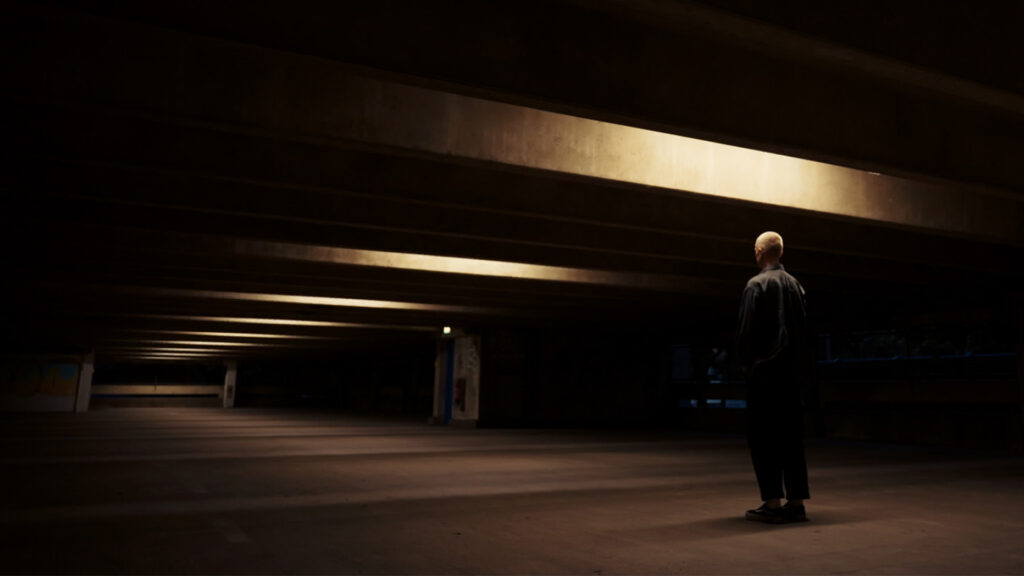Blog
When Men become Victims
Men also experience stalking and intimate partner violence. But there are hardly any counseling centers and shelters specifically for male survivors in Germany. In her recent documentary for SWR Vollbild, Global Diplomacy Lab member Sonja Peteranderl sheds light on the problem.
“After university, she often followed me around, grabbed my hand and grabbed my ass in public,” says Max, who lives in Stuttgart, Germany, and actually has a different name. He was stalked by his ex-girlfriend after the break-up, he says in an interview with SWR Vollbild.
Even during the relationship, she controlled, insulted and slapped him. Every time they met, she would check his smartphone and rummage through his messages and photos. “I felt naked,” says Max. ”I was afraid of doing the wrong thing, of doing something that might upset her and that she would punish me afterwards.”
In most cases of stalking and relationship violence, men are the perpetrators. But as the SWR Vollbild investigations show, many men in Germany are also affected by cyberstalking, stalking and relationship violence.
In 2023, the Federal Criminal Police Office recorded almost 170,000 cases of intimate partner violence in Germany. Almost 80 percent of those affected were women and around 20 percent were men, meaning that one in five people affected by intimate partner violence were women.
Netflix series “Baby Reindeer” makes the problem visible
The successful British Netflix series “Baby Reindeer”, which recently won six Emmys, makes the problem visible: a young man is stalked by a woman and raped by a man. In the UK, the mini-series triggered a so-called “Baby Reindeer” effect: More young men turned to counseling centers for men affected by violence.
In Germany, there are too few counseling centers for men affected by relationship violence to prove a similar effect. Nevertheless, the series could also help German victims: “Basically, every media portrayal, every report, every series is very good for us, because we know that it leads to people starting to talk about it and realizing that they have experienced something similar,” says psychologist Björn Süfke, who helped set up the “Gewalt an Männern” helpline (“Violence against men”).
Founded in 2020, the hotline is one of the few advice centers in Germany that specifically supports men affected by intimate partner violence. Several thousand men contact the hotline every year – because they are being controlled, stalked, threatened or beaten in relationships. Some also report sexualized assaults.

Traditional role models prevent men from seeking help
However, only a fraction of men who experience relationship violence turn to advice centers or the police. Traditional role models often prevent men from seeking help and receiving support – this can make relationship violence against men invisible. “Defining yourself as a victim is like a cut in your own masculinity,” says Süfke.“You victim” is the ‘worst swear word in school playgrounds today”.
“Men need to suffer longer than women, before they bring themselves to press charges,” observes the Saxony State Office of Criminal Investigation. However, even police forces are not yet sufficiently sensitized to male victims of violence, as interviews conducted by the Vollbild team with survivors and experts show.
Incredulous reaction from the police
Clemens, a Youtuber who lives in Berlin, also says that he was beaten by his ex-girlfriend. Once it was so violent that he wanted to call the police. His girlfriend said: “Yes, go ahead, who do you think they believe more, the big guy or the cute little girl?” When Clemens later wanted to press charges against her, a police officer reacted with disbelief when he learned that the perpetrator was supposed to be a woman, says Clemens.
The “Violence against men” helpline is actually only intended to be a first point of contact. “Many men need further advice or protection,” says Süfke. “Then we often have to say: the nearest option is 300 kilometers away.” There are currently only a dozen men’s shelters in the whole of Germany where those affected by stalking or relationship violence can take refuge, with a total of just 43 places for men. “That’s a drop in the ocean,” says Süfke.
Survey: Majority in favor of more support
On behalf of Vollbild, Infratest dimap conducted an exclusive representative survey of Germans on the subject of stalking and domestic violence against men. The results are surprisingly clear: 72% of Germans believe that the issue of stalking and domestic violence against men is not taken seriously enough. 75 percent think that more education and information is needed, as well as more help and advice services.
“There are currently not enough support services for either women or men affected by violence,” confirms the Federal Ministry for Family Affairs in response to a request from Vollbild. According to the ministry, the so-called “Gewalthilfegesetz” (Violence Assistance Act) is therefore to be launched, with three million euros earmarked for prevention measures in 2025.
“The Act sounds good, but money has to be spent on it, otherwise it won’t help,” criticizes Asha Hedayati, a lawyer for family law. She says: “Three million is nothing, that’s absurd.”
Help hotlines for men understaffed
The helpline for men also sometimes fails to reach men in need. According to Björn Süfke, the hotline lacks money and advisors. There is only one line – and it is only manned during the day on weekdays. “Our colleagues from the ‘Violence against women’ helpline have already told us that they clearly notice at weekends and in the evenings that we are not manned, because that’s when men call the ‘Violence against women’ helpline in the absence of a contact point,” says Süfke.
When Clemens tried to call advice centers, they were all busy. “You feel powerless,” he says. “You feel left alone and have the feeling that you’ve failed the system.”
More men are speaking out publicly
The “Was los mit dir” (“What’s up with you”) initiative from “Krisenchat”, a counseling service for young people, tries to reach boys and men where they are: On platforms such as Twitch or YouTube or at events such as the computer games fair Gamescom.
The young team also works with Youtubers and influencers who talk publicly about feelings, depression, suicidal thoughts or stalking. “This has really changed a lot in recent years, more and more people have gone public,” says psychologist Elias Jessen from Krisenchat. ”For us, this is also something that gives us a lot of courage, where we want to get involved.”
The Krisenchat team wants to break taboos and help men to open up. Max says that he didn’t tell any of his friends about his violent relationship. It was only after three years that he managed to break off contact with his ex-girlfriend. Before that, he had the feeling that he was simply at the mercy of the woman. “If I ran away, I was a wimp in her eyes,” he says. “If I hadn’t fled and fought back, I would have had a lawsuit on my hands, and rightly so.”
The German SWR Vollbild documentary “Männer als Opfer? Hilflos bei Gewalt und Stalking (Men as victims? Helpless in the face of violence and stalking) is now available in the ARD media library: https://www.ardmediathek.de/video/vollbild-recherchen-die-mehr-zeigen/maenner-als-opfer-von-stalking-und-gewalt/swr/Y3JpZDovL3N3ci5kZS9hZXgvbzIxMjU4NDI
Photos ©SWR Vollbild
